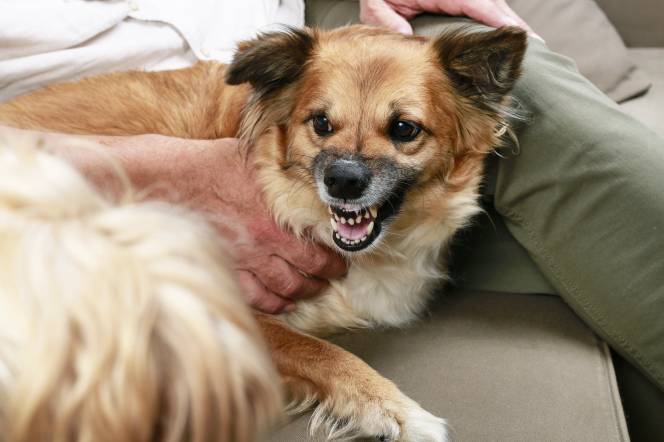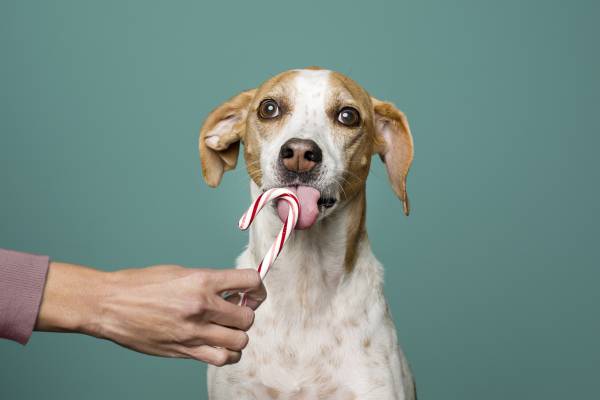Connect with a verified veterinarian in minutes. Licensed vets are available 24/7 to answer your questions. No need to worry about your furry family member.
Are you a pet parent of a female and a male dog? If so, you may have noticed that your female dog sometimes growls at the male dog. But why? What causes the female dog to act this way?
It’s common for dogs to growl at one another, including a female dog growling at a male. We’ve put together information about some of the most common causes of this issue. Let’s get started!
Why Do Dogs Growl?
Dogs growl as a form of communication. It’s a way to show a dog is unhappy with another dog or is somehow uncomfortable or in pain. Most dogs will growl because they’re afraid, being aggressive, protecting their territory, or because they’re in pain.
However, dogs may also growl when they’re playing together!
Why Female Dogs Growl at Male Dogs
If your female dog is growling at your male canine companion during play, this is not usually a sign of aggression. Just be sure to watch your dogs’ body language. At the first sign of aggression, it’s best to separate the dogs before things get out of hand and an injury occurs.
Another common reason for growling is if a female dog is in heat. She may not be receptive to your male dog’s advances and give him a warning growl.
Other warning growls may include:
Resource guarding: your female dog may want to keep your male dog away from resources that she deems valuable such as food and water, her bed, or her toys. This can also sometimes apply to you or other family members.
Pain: your female dog may growl if she’s in pain and does not want to be bothered in any way by the male dog.
Illness: a female dog may also growl at a male dog if she’s not feeling well. It could be a sign that she wants to be left alone.
Stress: another reason a female dog may growl at a male dog is if she feels stressed. She’s warning him not to come closer. Dogs may also growl because they’re afraid of the other dog.

Review symptoms, medications & behavior to keep your pets healthy with a Vet Online in just minutes.
Ask a Vet Live NowWhat to Do About Growling?
Never punish your dog for growling. Instead, it’s important to try to discern what the problem is. If she’s sick and in pain, it’s time to call the vet. And if she seems stressed or fearful of your male dog, it’s imperative to monitor them and see what’s going on between the two dogs.
If the growling is caused by resource guarding, you may also want to consider contacting the vet. They can refer you to a qualified animal behaviorist who can work with you and your dog to solve the problem.
Finally, if your dogs are growling during play and there’s no aggression or warning, it’s OK! Just let them play and have fun together!
Connect with a verified veterinarian in minutes. Licensed vets are available 24/7 to answer your questions. No need to worry about your furry family member.

Gemma Cliffin BSC BVSC MRCVS
This article has been reviewed and approved by an independent Veterinarian: Dr Gemma Cliffin MRCVS is an experienced small animal vet who combines her love of writing alongside working in practice. Since her graduation from the University of Liverpool in 2014 she has worked in a wide variety of roles including first opinion practice, as a night vet and as a locum vet. She has also spent time working at a charity clinic in the Cook Islands which was a challenge but also immensely rewarding. She loves all aspects of veterinary work, but she especially enjoys medicine cases and diagnostic imaging. She is passionate about pain-management, particularly in her more senior patients. She currently works in a first opinion small animal practice in North Yorkshire where she deals with both routine and emergency cases.
Review symptoms, medications & behavior to keep your pets healthy with a Vet Online in just minutes.
Ask a Vet Live Now





